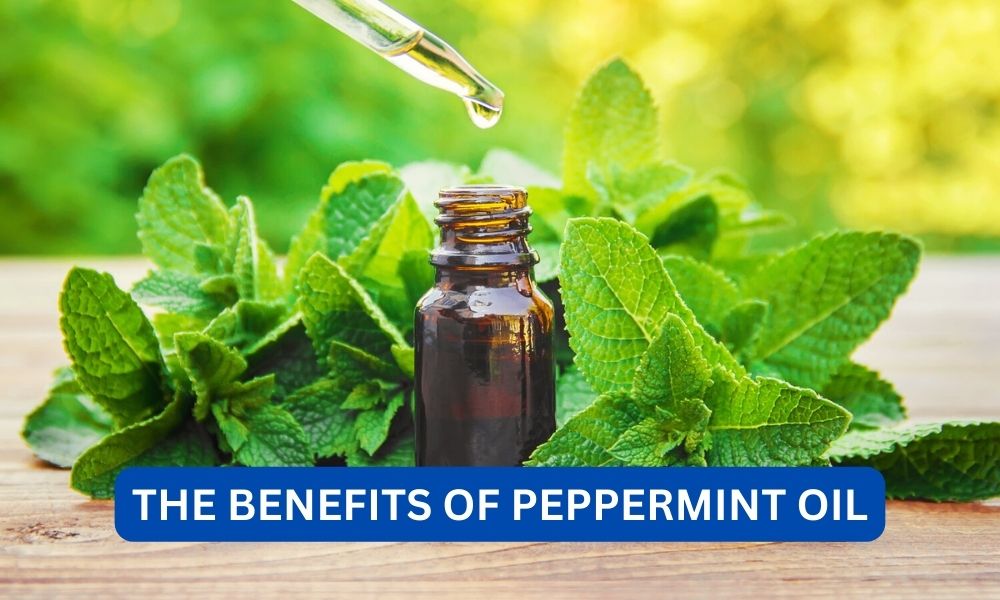Peppermint oil is a popular essential oil that has been used for centuries for its various health benefits. It is derived from the peppermint plant, a hybrid of watermint and spearmint, and is known for its refreshing and invigorating scent. But beyond its pleasant aroma, peppermint oil has a wide range of therapeutic properties that make it a staple in many households. In this article, we will delve into the benefits of peppermint oil and how it can improve your overall well-being.
Contents
What is Peppermint Oil?
Peppermint oil is extracted from the leaves of the peppermint plant through steam distillation. It contains menthol, menthone, and other compounds that give it its characteristic minty scent and cooling sensation. Peppermint oil has been used in traditional medicine for its medicinal properties, and its use dates back to ancient Egyptian, Greek, and Roman civilizations.
Today, peppermint oil is widely available and can be found in various forms such as essential oils, capsules, teas, and topical creams. It is also a popular ingredient in many household and personal care products, including toothpaste, mouthwash, and cosmetics.
The Benefits of Peppermint Oil
Peppermint oil has a wide range of benefits for both physical and mental health. Its therapeutic properties make it a versatile and effective natural remedy for various ailments. Let’s take a closer look at some of the benefits of peppermint oil.
Read:What are the benefits of honey1. Relieves Headaches and Migraines
One of the most well-known benefits of peppermint oil is its ability to relieve headaches and migraines. The menthol in peppermint oil has a cooling effect that can help soothe tension headaches and reduce the intensity of migraines. A study published in the International Journal of Neuroscience found that inhaling peppermint oil can significantly reduce the frequency and severity of headaches.
To use peppermint oil for headaches, you can either inhale it directly from the bottle or mix a few drops with a carrier oil and apply it to your temples and forehead. You can also add a few drops of peppermint oil to a warm bath or use it in a diffuser to reap its calming effects.
2. Improves Digestive Health
Peppermint oil has been used for centuries to aid digestion and relieve digestive issues such as bloating, gas, and stomach cramps. The menthol in peppermint oil has antispasmodic properties that can help relax the muscles in the digestive tract and alleviate discomfort. A study published in the Journal of Clinical Gastroenterology found that peppermint oil can effectively reduce symptoms of irritable bowel syndrome (IBS) such as abdominal pain and bloating.
Read:What are the benefits of beet juiceTo improve digestion, you can add a few drops of peppermint oil to a carrier oil and massage it onto your abdomen in a clockwise motion. You can also drink peppermint tea or take peppermint oil capsules to reap its digestive benefits.
3. Boosts Energy and Mental Clarity
The invigorating scent of peppermint oil can help boost energy levels and improve mental clarity. Inhaling peppermint oil can stimulate the brain and increase alertness, making it a great natural alternative to caffeine. A study published in the International Journal of Neuroscience found that inhaling peppermint oil can improve cognitive performance and increase alertness.
To reap the energizing benefits of peppermint oil, you can inhale it directly from the bottle or add a few drops to a diffuser. You can also mix a few drops with a carrier oil and apply it to your wrists and temples for a quick pick-me-up.
4. Relieves Respiratory Issues
Peppermint oil has been used for centuries to relieve respiratory issues such as coughs, colds, and sinus congestion. The menthol in peppermint oil has a cooling effect that can help soothe sore throats and open up the airways. A study published in the Journal of Ethnopharmacology found that peppermint oil can effectively relieve symptoms of respiratory infections.
Read:What are the benefits of kratom powder?To relieve respiratory issues, you can add a few drops of peppermint oil to a bowl of hot water and inhale the steam. You can also mix a few drops with a carrier oil and massage it onto your chest and throat.
5. Soothes Muscle and Joint Pain
Peppermint oil has analgesic and anti-inflammatory properties that make it an effective natural remedy for muscle and joint pain. The menthol in peppermint oil has a cooling effect that can help soothe sore muscles and reduce inflammation. A study published in the Journal of Pain found that peppermint oil can effectively reduce pain and improve physical functioning in people with fibromyalgia.
To relieve muscle and joint pain, you can mix a few drops of peppermint oil with a carrier oil and massage it onto the affected area. You can also add a few drops to a warm bath or use it in a compress to reap its pain-relieving benefits.
Precautions and Side Effects
While peppermint oil is generally safe for most people, it is important to use it in moderation and follow the recommended dosage. Peppermint oil can cause skin irritation and allergic reactions in some individuals, so it is important to do a patch test before using it topically. It is also not recommended for use on children under the age of six and should be avoided during pregnancy and breastfeeding.
Conclusion:
Peppermint oil is a versatile and effective natural remedy that has been used for centuries for its various health benefits. From relieving headaches and improving digestion to boosting energy and soothing muscle pain, peppermint oil has a wide range of therapeutic properties that make it a staple in many households. So the next time you’re feeling under the weather, consider reaching for a bottle of peppermint oil instead of over-the-counter medications. Your body will thank you for it.









